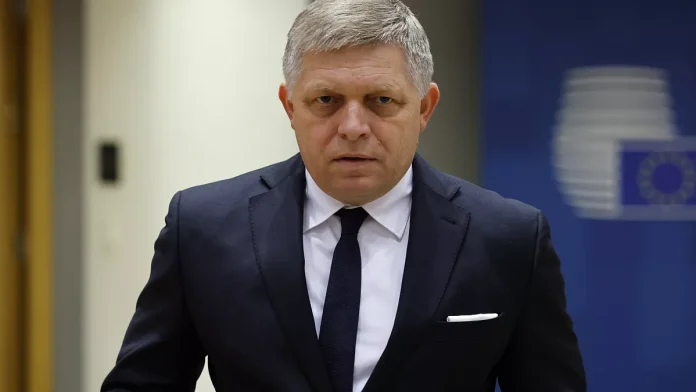Прем’єр-міністр Словаччини Роберт Фіцо, який з 22 грудня не з’являвся на публіці, був виявлений у п’ятизірковому готелі Capella Hanoi у столиці В’єтнаму. Про це повідомило словацьке видання Dennik N, посилаючись на відеозвернення Фіцо, у якому той виступав на тлі розкішного інтер’єру, що допомогло журналістам встановити його місцезнаходження.
Фіцо востаннє офіційно бачили 22 грудня в Москві, де він зустрічався з президентом РФ Володимиром Путіним. Подальший маршрут словацького прем’єра залишався загадкою. Уряд не давав жодної офіційної інформації про його місцезнаходження, а його відеозвернення, записані на тлі закритих штор, тільки посилювали підозри.
За даними журналістів, Фіцо, ймовірно, зупинився в елітних апартаментах готелю Capella Hanoi, розташованих на останньому поверсі. Площа номера складає 194 м², а вартість проживання – 6200 євро за ніч. Проте залишається невідомим, скільки часу прем’єр провів у цьому готелі.
Тим часом у столиці Словаччини, Братиславі, відбувся масштабний протест проти проросійської політики Фіцо. Близько 4000 людей зібралися, щоб висловити незадоволення діями прем’єра, який, за словами протестувальників, “віддає Словаччину Росії”.
На мітингу звучав гімн Європейського Союзу, а учасники розмахували прапорами ЄС. Організатори акції роздали протестувальникам плакати словацького художника Рудольфа Сікори із написами “Зрада” та “Ми – Європа”. Один із лозунгів мітингувальників звучав: “Ми не російська ганчірка”.
Зникнення прем’єра Словаччини та його дорогий відпочинок у В’єтнамі на фоні економічних і політичних викликів країни викликали шквал критики. Невдоволення в суспільстві наростає, особливо через його проросійський курс, який не відповідає європейським прагненням багатьох словаків.
Відсутність прозорості щодо поїздки Фіцо лише підсилює напругу та ставить під сумнів його лідерство, особливо в умовах міжнародної уваги до посилення впливу Росії в регіоні.


